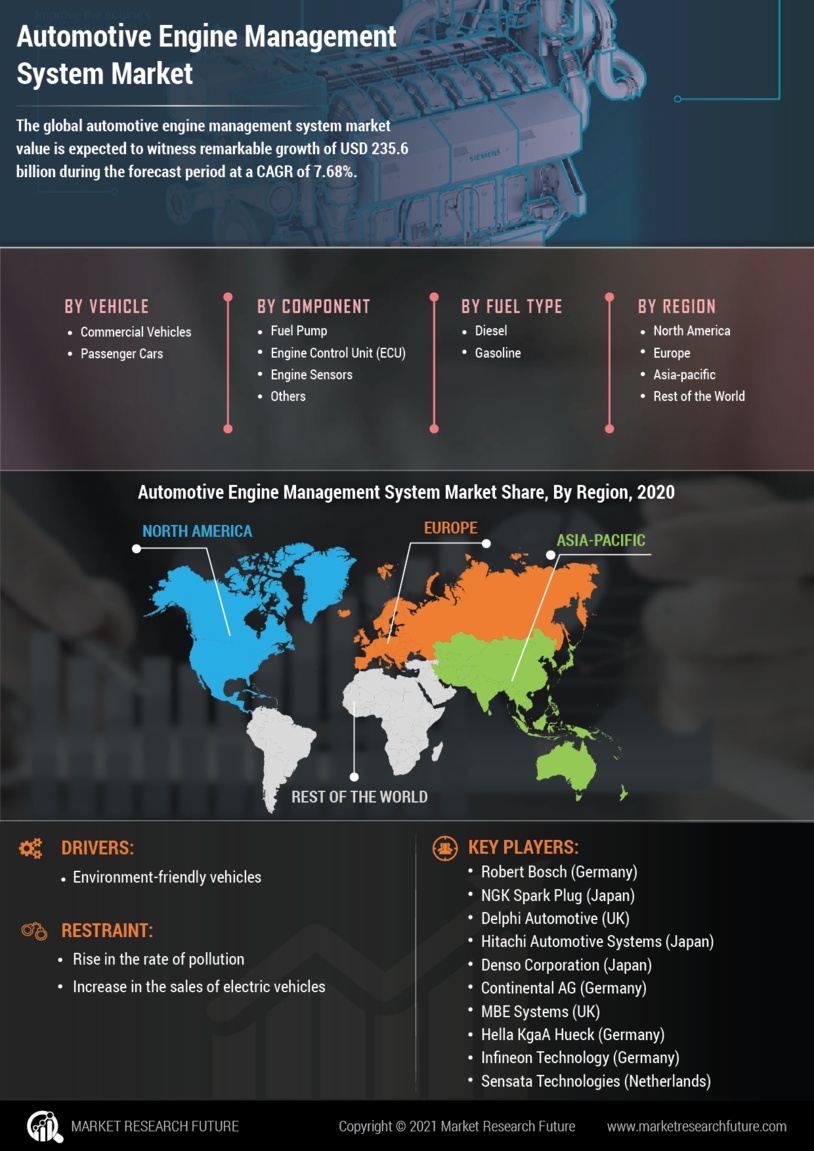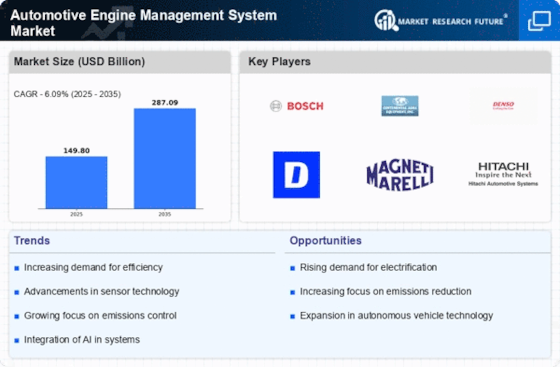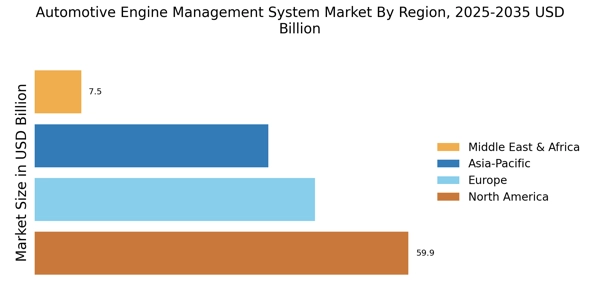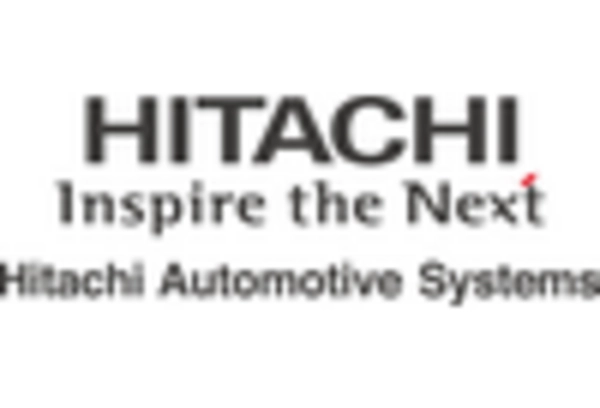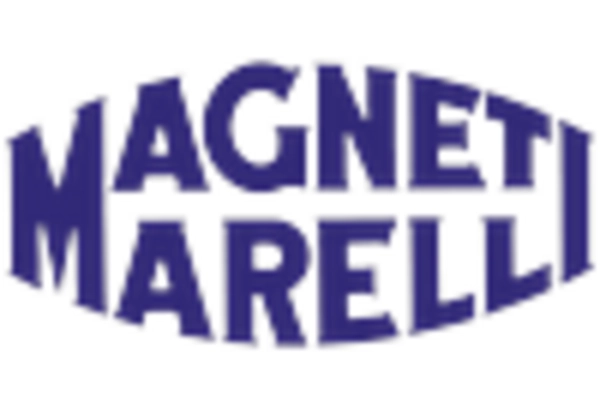Emphasis on Sustainability
Sustainability has become a pivotal focus within the Automotive Engine Management System Market, as consumers and manufacturers alike prioritize environmentally friendly solutions. The increasing awareness of climate change and the need for reduced carbon footprints are driving the demand for more efficient engine management systems. Manufacturers are investing in technologies that enhance fuel efficiency and minimize emissions, aligning with global sustainability goals. Recent statistics suggest that the market for eco-friendly automotive technologies is on the rise, indicating a robust trend towards sustainable practices in the automotive sector. This emphasis on sustainability is likely to propel the Automotive Engine Management System Market forward.
Shift Towards Electrification
The Automotive Engine Management System Market is witnessing a substantial shift towards electrification, driven by the increasing demand for electric vehicles (EVs) and hybrid vehicles. This transition necessitates advanced engine management systems that can efficiently control electric powertrains and optimize energy consumption. As of October 2025, the market for electric vehicles is expected to continue its upward trajectory, with projections indicating that EV sales could reach unprecedented levels. This shift not only influences traditional engine management systems but also encourages the development of new technologies tailored for electric and hybrid vehicles, thereby expanding the Automotive Engine Management System Market.
Regulatory Compliance and Standards
The Automotive Engine Management System Market is significantly influenced by stringent regulatory compliance and standards aimed at reducing vehicle emissions and enhancing fuel efficiency. Governments worldwide are implementing more rigorous regulations, compelling manufacturers to adopt advanced engine management systems that meet these requirements. As of October 2025, the market is expected to see a surge in demand for systems that can comply with evolving emissions standards. This regulatory pressure not only drives innovation but also fosters competition among manufacturers to develop cutting-edge solutions, thereby propelling the Automotive Engine Management System Market.
Integration of Advanced Technologies
The Automotive Engine Management System Market is experiencing a notable shift due to the integration of advanced technologies such as artificial intelligence and machine learning. These technologies enhance the efficiency and performance of engine management systems by enabling real-time data analysis and predictive maintenance. As a result, manufacturers are increasingly adopting these innovations to optimize fuel efficiency and reduce emissions. According to recent data, the market for AI in automotive applications is projected to grow significantly, indicating a strong trend towards smarter engine management solutions. This integration not only improves vehicle performance but also aligns with regulatory requirements for emissions, thereby driving the Automotive Engine Management System Market.
Consumer Demand for Enhanced Performance
Consumer demand for enhanced vehicle performance is a critical driver in the Automotive Engine Management System Market. As consumers increasingly seek vehicles that offer superior acceleration, fuel efficiency, and overall driving experience, manufacturers are compelled to invest in advanced engine management technologies. This trend is reflected in market data, which indicates a growing preference for vehicles equipped with sophisticated engine management systems that optimize performance. The desire for high-performance vehicles is likely to continue influencing the market, as manufacturers strive to meet consumer expectations while adhering to regulatory standards, thereby driving growth in the Automotive Engine Management System Market.
